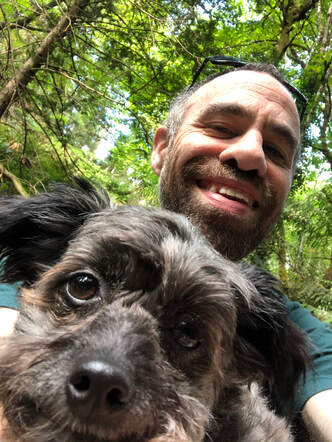What Do Men Want (at end-of-life)?: An interview with David Curtis about embracing vulnerability9/25/2020
In our interview, Dave aptly names traditional masculinity as a force impeding many men's involvement in their health and future planning. Cis gendered men (1) are often expected to suppress their emotions and project dominance. In this world view, experiencing illness and being mortal is the antithesis of traditional masculinity which prizes infallibility. Performing and enforcing traditional masculinity can cause both physical and mental illness, impair healthy relationships and normalize aggression. People who are gay, bisexual or transgender face even greater hostility, violence and pressure to conform to traditional norms. Boys and men socialized in traditional masculinity are less likely to engage in healthy behaviors, including embracing the vulnerability that is required to accept their mortality and make their end-of-life plans. “Because of the way many men have been brought up—to be self-sufficient and able to take care of themselves—any sense that things aren’t OK needs to be kept secret,” says Fredric Rabinowitz, PhD, a psychologist at the University of Redlands. “Part of what happens is men who keep things to themselves look outward and see that no one else is sharing any of the conflicts that they feel inside. That makes them feel isolated. They think they’re alone. They think they’re weak. They think they’re not OK. They don’t realize that other men are also harboring private thoughts and private emotions and private conflicts.” (2) Perhaps a partial antidote to this isolation and the toxicity of traditional masculinity is sharing stories of vulnerability and making multiple masculinities visible. Stories like Dave's that role-model bravely opening the door to intimate conversation. Stories that acknowledge death is not a failure nor a weakness. It is, in fact, human nature. I encourage you to share Dave's answers with the men in your life who may be hesitant to prepare their end-of-life wishes. Do they share Dave's perspective or feel differently? You may also try these conversation starters:
With love and light, Chelsea (1) When a person's sense of personal identity and gender corresponds with their birth sex. (2) https://www.apa.org/monitor/2019/01/ce-corner Interview with Dave Curtis
Please introduce yourself. What would you like readers to know about you? Hi my name is Dave Curtis. I’m 41 years old. Dad to a tiny dog and husband to my sweetheart of 20+ years. I’ve spent the last 5+ years struggling on long term disability with debilitating persistent pain from a hand injury. I have lived with a range of health issues for most of my life despite a generally healthy lifestyle. Why is it important for you to make your end of life plans? What motivates you? Throughout my life I have experienced some life altering and potentially deadly health challenges. My times in hospital taught me what I do not want for my last days of life. It also showed me that health issues arrive unexpectedly so preparedness is prudent. Once you are living with illness everything is harder to accomplish. I am motivated to plan for death for two reasons: to ease the burden of my loved ones in dealing with my body and to reduce my own discomfort during my transition to death. What do you think holds some men back from making their end of life plans? I think it’s possible men still feel their spouse will outlive them and will be there to deal with all the logistics of death. This is no longer the norm due to modern medicine and changes in activity and employment. I personally have experienced some internal resistance for death planning with my elders and within myself. It usually takes the form of feeling like not wanting to ‘wake the dragon.’ As if not talking about death might keep it at bay. Our society and our history has put a lot of pressure on men to be strong and tough. Admitting that you are mortal does not fit well into society‘s mould for men. It’s possible this has an impact on the willingness of men to engage in end of life planning. What would you say to a man who is hesitant about starting on making their end of life plans? You already treat many types of insurance as a given. You insure your car, house, cell phone and more. End of life planning is just another kind of insurance but it’s not for objects. It’s insurance for your end of life comfort and to reduce the burden on your loved ones at an emotional moment. How can death care professionals, like myself, help men do this important work? I think the My Personal Comfort Plan booklet you are offering is a great way to engage men in end of life planning. Insurance for your comfort during your final days is an easy starting place. Is there anything else you'd like to say? I find being prepared for something to be a worthwhile and rewarding process. It puts my mind at ease and allows me to focus my energy elsewhere. Talking about end of life planning can seem awkward. Knowing you have things mapped out for end of life transition is worth some awkward moments.
0 Comments
Leave a Reply. |


 RSS Feed
RSS Feed
